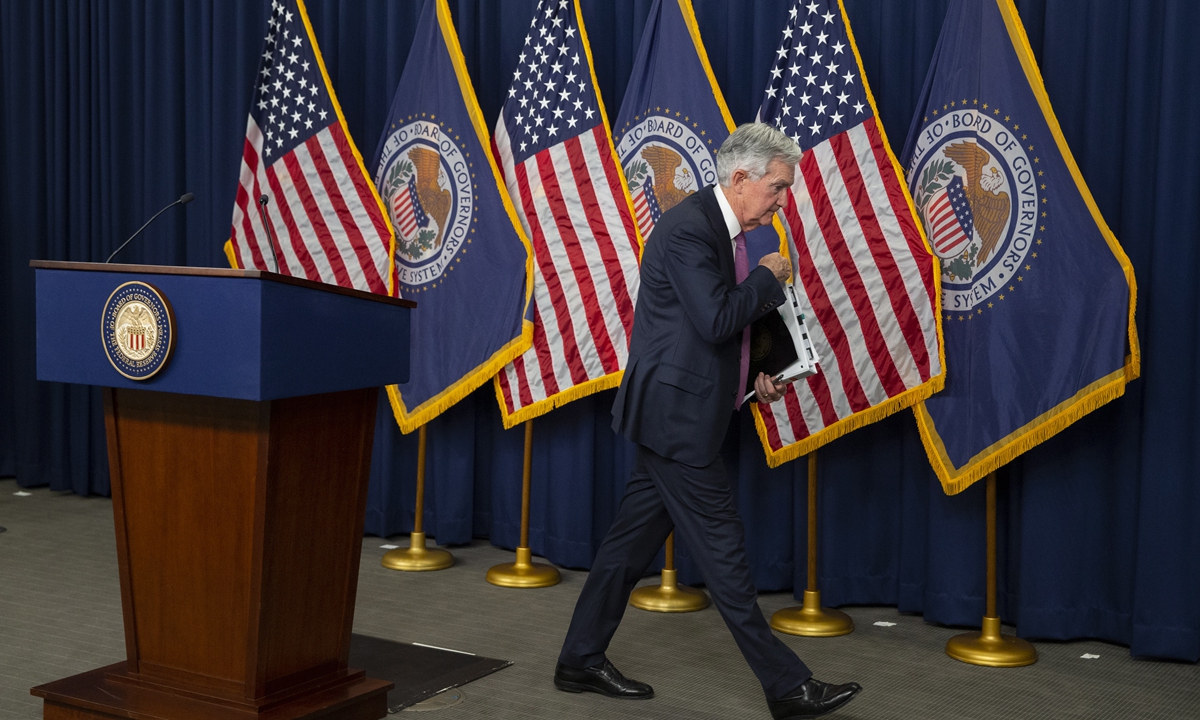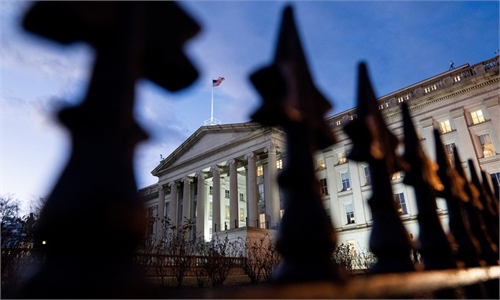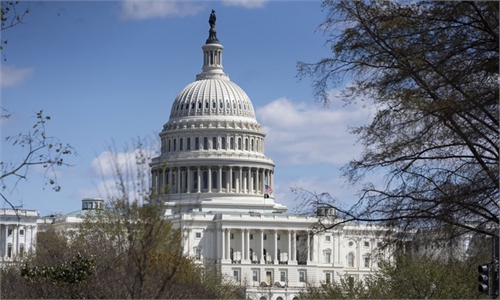
US Federal Reserve Board Chairman Jerome Powell File photo: IC
After a pause in June, the US Federal Reserve resumed its interest rate hikes on Wednesday and lifted its benchmark interest rate by 25 basis points to the 5.25-5.50 percent range, hitting a 22-year high.
Though the current rate-hiking cycle, as many expected, is drawing to a close, the aggressive pace of interest rate hikes lasting more than a year has continued to disrupt international trade, many economies and the financial sector, experts said.
It was the 11th rate increase since the Fed began monetary tightening in March 2022. During a news conference on Wednesday, Fed Chairman Jerome Powell reiterated a commitment to tame inflation, noting that hitting the Fed's 2 percent inflation target "has a long way to go."
US consumer price inflation (CPI) increased by 3 percent on a yearly basis in June, dropping to its lowest level in more than two years. However, stripping out volatile food and energy prices, the core CPI rose 4.8 percent, which was well above the ideal 2 percent level.
Historically, bringing inflation down into the Fed's targeted range through aggressive rate hikes has often come at the cost of causing economic recession, and the signals of a contraction have emerged in the US, Hu Qimu, the deputy secretary general of the digital real economies integration Forum 50, told the Global Times on Thursday.
The US is getting used to shifting its economic woes to other countries through its rate-hiking cycles, as the process always draws capital into the US and causes troubles for the emerging markets, Hu said.
Since US rates have remained high for some time, and the probability of a rate cut this year is low, emerging market economies, especially the heavily indebted poor ones, face mounting pressure from capital outflows, currency depreciation and rising debt servicing costs.
In addition, weak consumer demand in the US is negative for other economies that have become dependent on exports, which means production cuts, Hu said.
Imports of goods by the US fell 2.3 percent year-on-year in May, with imports from Vietnam down 25 percent, US official data showed.
However, the US is not isolated from the global supply chain, and an impaired global supply chain will ultimately hurt the US itself, as developing countries cutting production will lead to higher prices and entrenched inflation in the US, Hu said.
Cooperating with China can offer a way out. For instance, US companies, which are scaling back domestic investment due to high interest rates, could fund projects in China with higher rates of return, particularly in emerging sectors such as new-energy vehicles and biomedicine, Hu noted.
Senior executives of US companies have been flocking to China lately, including Microsoft founder Bill Gates, Tesla CEO Elon Musk, Apple CEO Tim Cook and Visa Executive Chairman Al Kelly. While defying calls in the West for "decoupling" or "de-risking", they expressed intent to expand investment in China.
During a meeting with Chinese Vice President Han Zheng in Beijing on Wednesday, Kelly said that Visa has full confidence in its investment in China and stands ready to expand long-term cooperation with China and contribute to bilateral economic and trade cooperation, according to the Xinhua News Agency.


